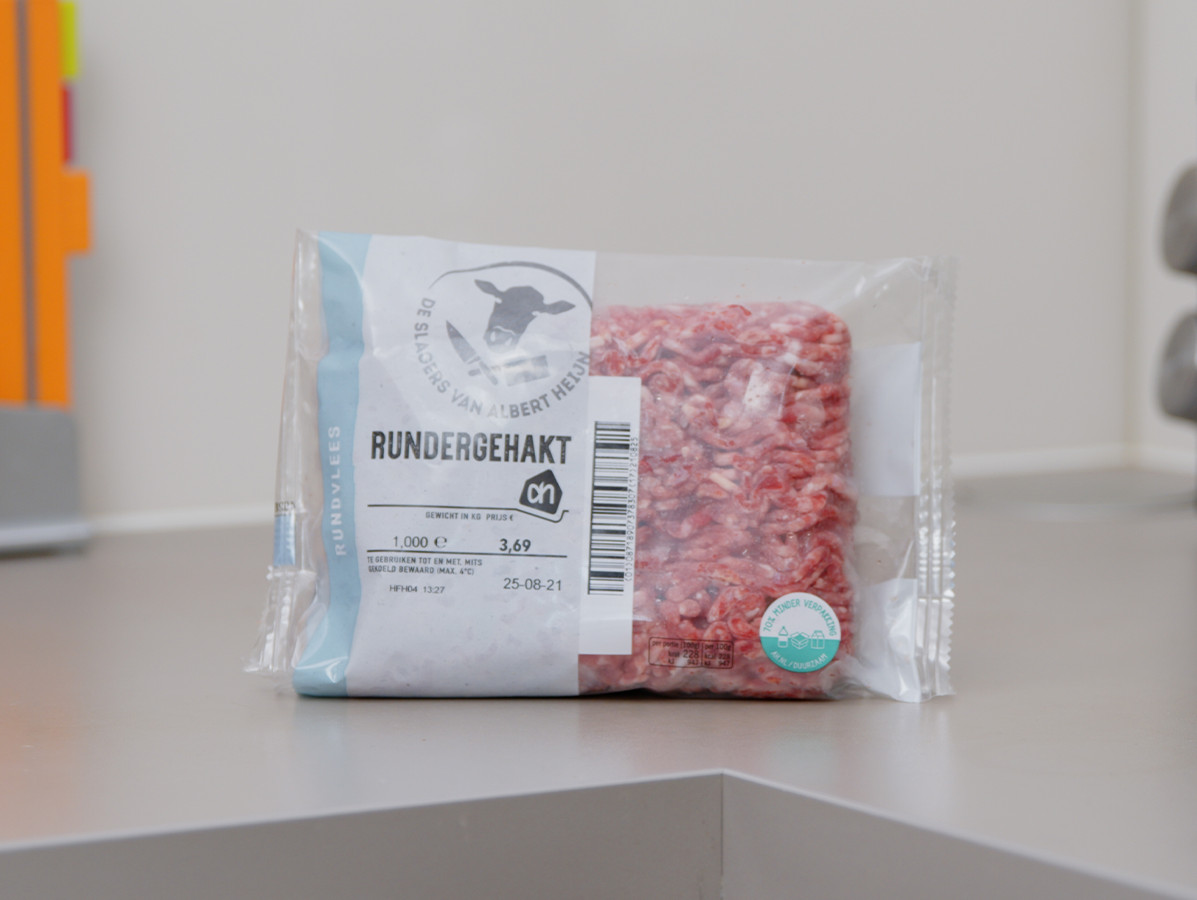
From now on, Albert Heijn's minced meat comes in a bag instead of a box. This saves more than 500,000 kilos of plastic on an annual basis - a 70% saving. For customers, the new packaging also has an advantage in the kitchen: the plastic waste bin is less likely to be full. The transition from box to bag will start beginning of September .
In 2025 Albert Heijn wants to use 20 million kilo less packaging material. Moreover, the packaging of all own brand products must be 100% recyclable by then. In order to reach this target, all packaging of own brand products will be looked at to see if it can be improved, without making concessions to quality and shelf life.
Various meat packaging items have already been modified. For example, coloured plastic trays are no longer used because they are less recyclable. Together with its regular meat supplier Hilton Foods, Albert Heijn has now developed an alternative for the trays of minced meat. From next week onwards, minced meat will be packed in a plastic bag. The bag is slightly bulging because oxygen has been added. This way, the minced meat is well protected.
The new packaging results in a considerable plastic saving, and the plastic waste bins at customers' homes are also less likely to fill up. Customers are informed about the new minced meat packaging in the shop, in Allerhande and on ah.nl.
Over the past three years, Albert Heijn has saved over seven million kilos of packaging material by not using any, less or different types of material. For example, meal and lunch salads are now in a thinner tray and snack vegetables have moved from the familiar bucket with a lid to thin trays with a top sheet. Next month Albert Heijn will tackle the packaging of cheese slices. More than 100 cheese packages will be changed, resulting in a plastic reduction of 200,000 kilos per year.
Source: Albert Heijn